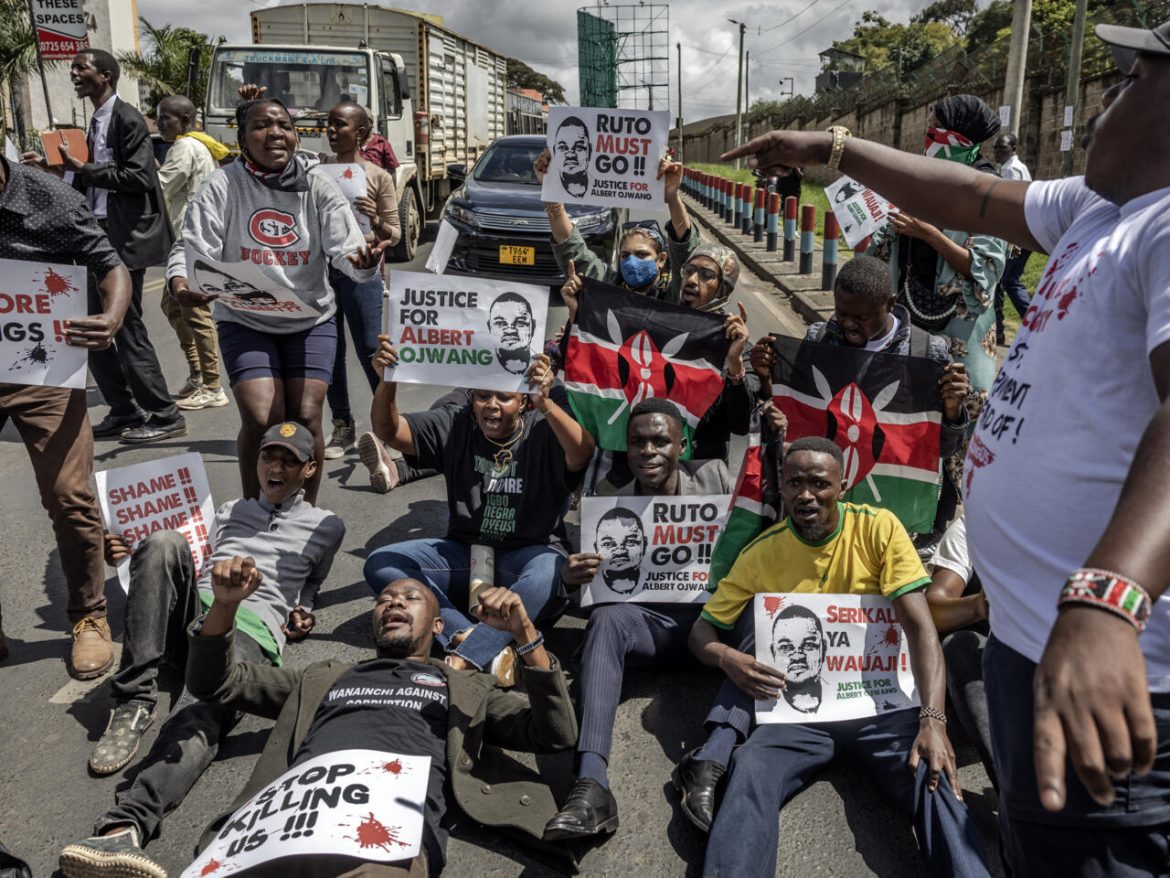Protests broke out in Nairobi on Monday and Tuesday following the death of Kenyan blogger Albert Ojwang, who was found dead while in police custody. The police initially claimed Ojwang injured himself by banging his head against the wall in his cell. However, a government pathologist’s autopsy report released on Tuesday contradicted this, stating that Ojwang was strangled and suffered multiple injuries consistent with assault.
Dr. Bernard Midia, the government pathologist, told reporters during a press briefing that the injuries on Ojwang’s head and body did not match the pattern expected from self-inflicted harm. “When we examined the pattern of the injury, especially on the trauma, I found it on the head. Hitting against a blunt substance like a wall would have a pattern,” he explained, adding that the injuries were clearly caused by assault.
Ojwang was arrested on Friday in Homa Bay, western Kenya, and transported about 400 kilometres to Nairobi, according to fellow activists who spoke at a news conference outside the Nairobi Funeral Home, where they paid respects to the family. The activists claim that Ojwang’s arrest was linked to a post he made on social media platform X, which criticized Deputy Police Chief Eliud Lagat.
Activist Ndungi Githuku said, “What the members of the (Ojwang) family are saying is that they have seen the body. The lawyer has also said they have seen the body, and there are more than one injury on his face, his hands, and the body, so how could he have hurt himself like that?”
Kenya Police confirmed that the Independent Policing Oversight Authority (IPOA) has launched an investigation into Ojwang’s death. Inspector-General Douglas Kanja said the officers on duty when Ojwang died would not return to work pending the outcome of the investigations.
Amnesty Kenya issued a statement expressing concern over Ojwang’s arrest and death, calling for transparency and accountability. The human rights group insisted that the IPOA report should be made public and that any officers found responsible must be held fully accountable for their actions.
Ojwang’s death has reignited outrage across social media platforms and has led to renewed calls for protests demanding justice and accountability from the Kenyan government.
This tragic incident comes nearly a year after several activists and protestors were killed and abducted during the 2024 finance bill protests in Kenya. Despite the government scrapping the controversial taxes, economic frustrations remain high among many Kenyans.
